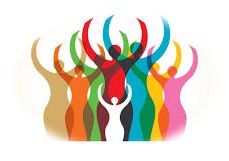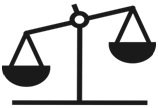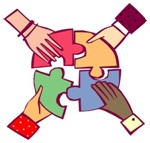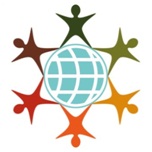Organizational Brief and Structure
SWADHIKAR was registered as a Society in March 2005 under the Societies Registration Act 1860. It is committed to the elimination of discrimination based on caste and collaborates with various groups led Dalit women and men activists, with support and solidarity from organizations, academics, individuals, people’s organizations and institutions throughout the country who are committed to work to protect and promote human rights focusing on women and children from vulnerable communities.
It started its work in 1998 as a loose network of organisations and individuals across the country. In order to raise the visibility of it’s work Swadhikar organized ‘Dalit Swadhikar Rally’ across the country which started on 6th December 2003 from four corners of the country- Jammu, Delhi, Kolkatta and Kanyakumari culminating in Mumbai to educate civil society particularly from Dalit communities on social and economic rights and the need to utilize the institutions of justice and economic development.
Since inception Swadhikar along with collaborating organisations have trained more than 724 Dalit women and men human rights defenders in 17 states. The reach of the organisations activities is widespread and focuses to address the rights of the community especially the excluded.
Its main aim is to strengthen the institutions delivering justice to Dalits and build peoples capacity to access them as rights and entitlements. It focuses on women among the vulnerable sections and recognises that economic entitlements are as equally important as social justice where SCs and other vulnerable communities are concerned.
Swadhikar now focuses on Dalit women’s rights to access justice and economic entitlements, tracking budgets and enabling Dalit communities to utilise the Special Component Plan (SCP) towards their development, to strengthen the land and livelihood rights and to strengthen the criminal justice administration and streamline its access to the vulnerable sections of the Dalit community.
It looks into the four main thematic areas:

Gender Justice : It has a women’s unit which is committed to challenging the nexus of patriarchy, caste, culture and class oppression, exploitation and marginalization of Dalit Women. The Women’s unit has membership and solidarity of Dalit & non-Dalit women, Dalit men and other human rights defenders committed to the cause of protection and promotion of the rights of Dalit Women under the leadership of Dalit Women.

Access to Justice : This unit looks into the criminal justice administration systems to address issues of access to justice for those affected by atrocities and violence. The main vehicle is the SC/ST POA Act and the unit advocates to strengthen survivors and victims as they use the law for access to justice - both penal and pecuniary. It work’s with the executive, the judiciary and the policy makers and peoples representatives in bringing the voice of the survivors and victims and to ensure effective implementation of existing acts and measures.

Economic Justice : This unit looks at the various economic rights of Dalits including education and entrepreneurship. It uses the Union and state Government budgets as the main vehicle to tracking schemes and entitlements of Dalits. It involves in advocacy with policy makers and executives in strengthening the existing policies and tracking it for accountability and transparency.

International Advocacy : This unit advocates internationally in three areas. It focuses on UN mechanisms to use them to address Caste Based Discrimination through several treaty bodies and c harter based mechanisms. It participates in the Human Rights Council and other process for relevant interventions. It works with International Human rights Organisations during grave atrocities as well as campaigns for strengthening the Criminal Justice Administration. It supports several Dalit solidarity bodies initiated in over 6 countries to advocate for Dalit rights in UN as well as in the EU.

Disaster Risk Reduction : This unit focuses on Monitoring Disaster Response and Preparedness for Inclusion & Equity, working towards developing tools and methods to map, document and mitigate caste-induced vulnerability and discrimination in disaster preparedness, mitigation, response and rehabilitation for inclusion of Dalits in disaster management.



